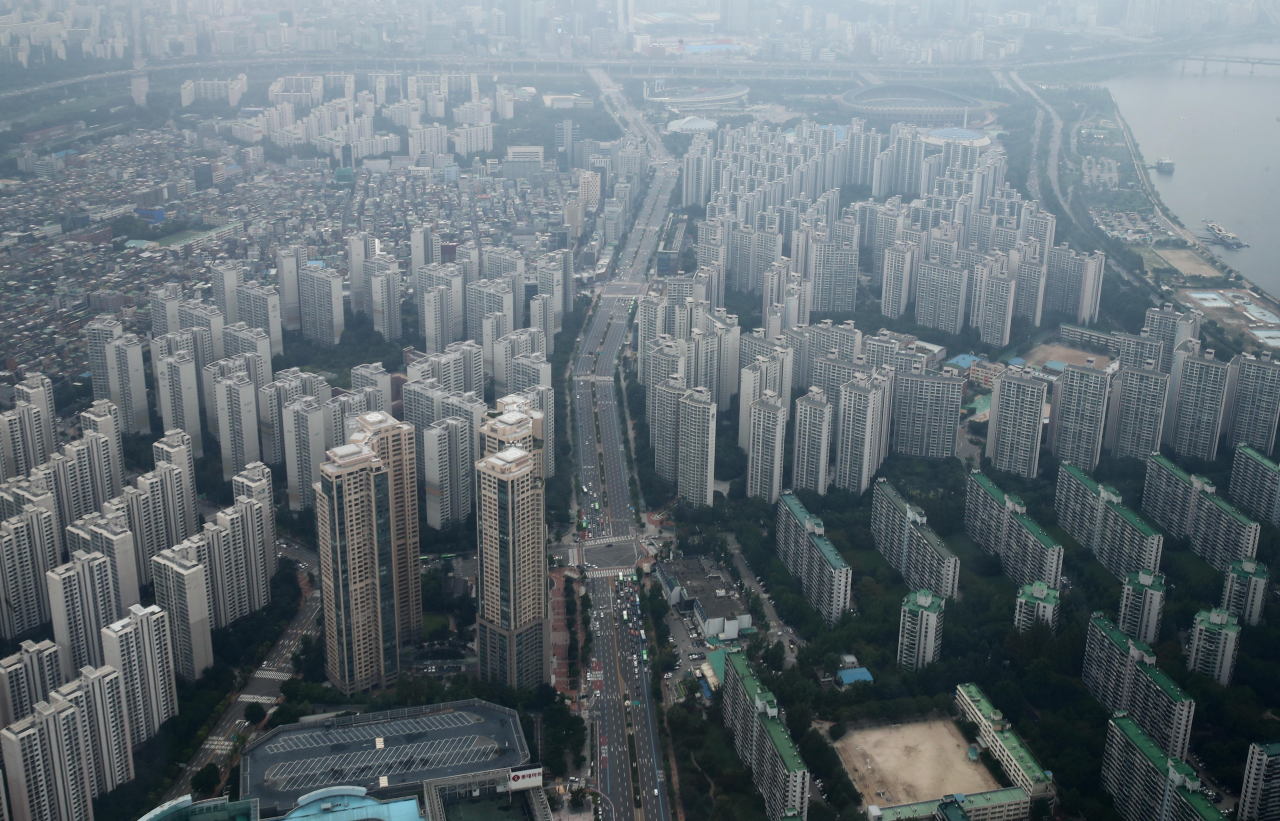 |
(123rf) |
South Korean companies’ climate targets are not grounded in scientific evidence, a study showed Thursday, indicating that ambitious goals to achieve carbon neutrality for a sustainable future lack substance.
This heightens calls for the country, which recently unveiled its ambition to achieve carbon neutrality by 2050, to have its companies take more concrete action to cut greenhouse gas emissions -- a major culprit behind global warming -- ahead of the Group of 20 Summit in October, according to the Science Based Targets initiative.
Its research revealed that 106 companies based in Korea had disclosed climate targets via the international nonprofit organization CDP as of August. But none of their goals were in line with the levels required to deliver on the science-based Paris Agreement goals, according to SBTi. The Paris Agreement has called on the world to halve emissions before 2030 and achieve net-zero emissions before 2050.
SBTi is a collaborative effort by CDP, the United Nations Global Compact, the World Resources Institute and the World Wide Fund for Nature.
Korea was one of five G-20 member nations, along with Argentina, Indonesia, Russia and Saudi Arabia, that had zero companies with science-based targets to address climate change by 2030.
Korea’s figure is way below the G-20 average of 20 percent, meaning 837 companies out of 4,215 in the G-20 countries had their climate targets validated in line with the Paris Agreement goals, first unveiled in 2015.
It also stands in contrast with active adopters of science-based climate targets. In the United Kingdom, 41 percent of companies with disclosed climate targets had science-based targets. The proportion in France came to 33 percent, while the figure for Australia was 30 percent.
Asian countries have also taken part in the initiative, with India’s figure standing at 24 percent and Japan’s at 19 percent. China’s figure came to 3 percent.
Under the SBTi’s definition, science-based targets are validated by a panel of experts using a set of criteria to ensure a full greenhouse gas inventory is disclosed and covered by the targets. SBTi then rates a company’s climate ambitions based on whether they are adequate to limit global warming through a stakeholder-inclusive process.
The research was announced ahead of the G-20 Rome summit, scheduled to take place in late October. Also, Korea is to take part in the 2021 UN Climate Change Conference’s Convention of the Parties -- also known as COP26 -- in Glasgow, Scotland later this year.
These two international events represent crucial milestones on the road toward meaningfully reducing greenhouse gas emissions, the researchers said.
“Urgent climate action must now be a top priority for those in power,” Lila Karbassi, chief of programs with the UN Global Compact and the SBTi board chair, said in a statement.
“Science-based targets are proven to cut corporate emissions at the pace and scale required -- they are a vital part of the puzzle for governments and companies worldwide.”
SBTi plans to finalize its net-zero framework for science-based targets by Oct. 28, just before the upcoming G-20 summit.
 |
A hazy aerial view of Seoul (Yonhap) |
The findings came amid a green wave under which Korean firms rushed to join green initiatives and file climate-related disclosures, especially on the back of the Moon Jae-in administration’s net-zero mantra unveiled last year.
In tandem, a nationwide investment boom taking environmental, social and governance factors into account has been materializing. Korean firms have financed 68.4 trillion won ($58.2 billion) via ESG bonds this year until Sept. 14, higher than the annual volume of 58.9 trillion won in 2020, according to KRX.
Also, pooled funds targeting ESG-themed stocks or bonds saw their combined net asset value spike to 3.4 trillion won as of Sept. 14, up 70 percent from end-2020, according to data by market tracker FnGuide.
Korean firms, however, have largely lagged behind in terms of validating their climate-related disclosures.
According to SBTi, 19 listed companies out of the constituents of the Kospi 50 index provided by the Korea Exchange had disclosed climate targets, but none of their targets had been reviewed to determine validity.
Korea hopes to host the 2023 COP26. The fourth-largest economy in Asia hosted the P4G Seoul Summit earlier this year. The country‘s lawmakers passed a bill in late August that described a 35 percent cut in greenhouse gas emission from 2018 by 2030 as the government‘s climate goal.
By Son Ji-hyoung (
consnow@heraldcorp.com)






![[Weekender] Korea's traditional sauce culture gains global recognition](http://res.heraldm.com/phpwas/restmb_idxmake.php?idx=644&simg=/content/image/2024/11/21/20241121050153_0.jpg)


